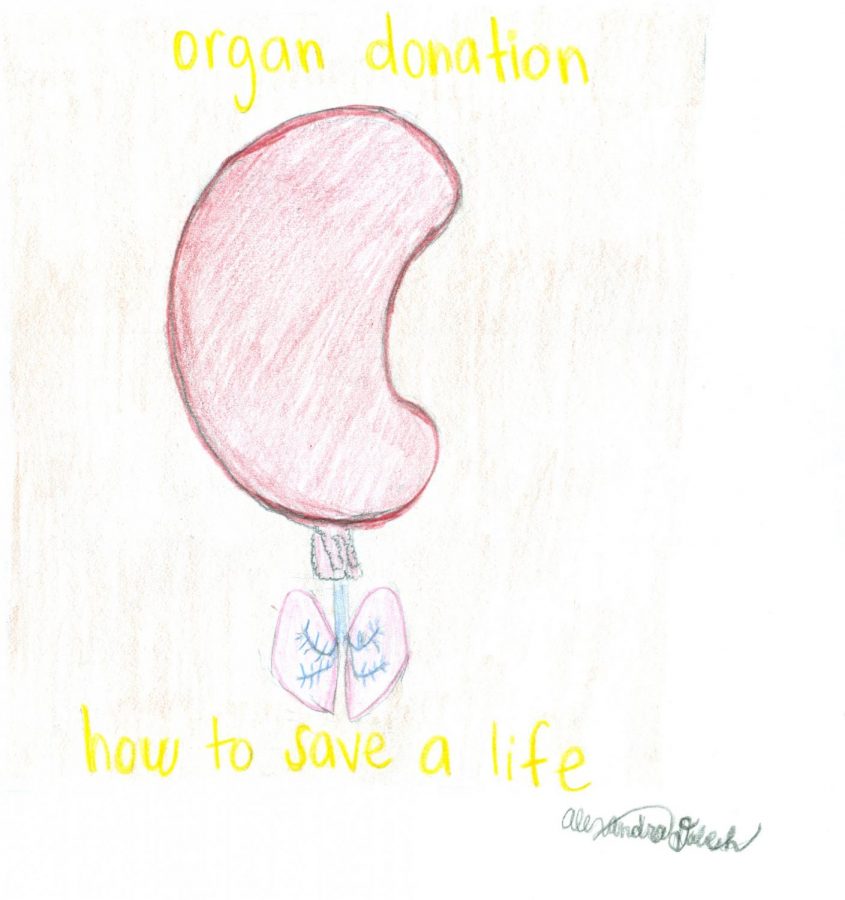How To Save A Life
The importance of organ donation
December 13, 2018
Over 114,000 people in the U.S. are waiting for something. It’s not Christmas vacation or an ACT score, they’re people are waiting for is a life-saving organ.
According to U.S. Department of Health & Human Services, one person is added to the national transplant list every 10 minutes, and everyday 20 people die waiting for a transplant. The Nebraska Department of Health and Human reports that approximately 450 people in our home state alone are on the waiting list.
The number of people in need of an organ continues to grow rapidly, but the number of donors does not, leaving parents, grandparents or friends anticipating whether or not they will live to see the next day because there are no organs available to them.
Millard West students can be a part of the solution.
A single donor can save up to eight lives through the donation of the heart, liver, pancreas, intestines, two lungs and two kidneys. HHS reports as of 2014, hands and faces have been added to the list of donatable organs. People can also register to donate their corneas, which can restore sight to those who have suffered from eye disease, injuries and birth defects. Tissue donation is another option that helps up to 50 people through helping by covering burns, repairing hearts, fixing damaged connective tissue and cartilage and replacing veins.
Organ donors can be living, but they are most often deceased. For a deceased donor, organ donation can only occur if a person is in a hospital and under the support of mechanical ventilation, which provides blood and oxygen to organs after brain death.
There are many myths circulating about organ donation which keep people from registering. They include the misconception that organ donation will interfere with the desire to have an open-casket funeral, the concern that someone is too old or not healthy enough to be an organ donor or the fear that being an organ donor will cause a doctor to not try to save their life.
These are not true.
Organ donation does not interfere with the ability to have an open casket funeral. Doctors try their best to save every patient; the possibility of organ donation does not even occur until the patient reaches brain death. Also, no one is too young or too old to be a donor, and donors can have medical conditions.
Anyone can sign up, and everyone should.
Due to the fact that only 3 in 1000 people die in a way that allows for organ donation according to HHS, the U.S. is in desperate need of donors. Signing up is easy and can be done online, by mail or in person at the DMV when registering for a driver’s license. Those 16 and older can register, but legal guardians have the final say until they turn 18. It is important to have a conversation with family members expressing the desire to be an organ donor. Don’t wait. A conversation today could save a life tomorrow.
Organ donation has the support of most major religions in the U.S., including Catholicism, Islam, Judaism and Mormonism. Registering as a donor allows for those unneeded organs, organs you don’t need once you die, to provide others with a chance at life. There is no reason not to register.
In 2017, 34,770 transplants occured and 42,609 organs were donated. However, there is room for improvement. HHS also reports that despite the fact that 95% of U.S. adults support organ donation, only 54% are actually registered.
This can change.
The Nebraska Department of Health and Human Systems reveals that only 54% of eligible Nebraskans are registered as organ donors. Everyone should register when they receive their driver’s license. Be a hero. Save a life.







